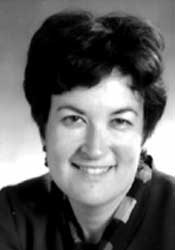The University’s Center for Advancing Research and Solutions for Society (CARSS) has launched its first two projects, exploring the human impact of global corporations and the future of sustainable transportation.
An innovative forum seeking knowledge-based strategies and potential solutions for society’s most pressing problems and vexing dilemmas, CARSS aims to blend the best of scholarship and practical expertise.

“CARSS will create new knowledge that from the start is designed to be tested in the real world,” says David Featherman, director of the new center and outgoing director of the Institute for Social Research. “We are going beyond studying problems and then offering insights for others to use as they see fit. Instead, and in new collaborations between academic experts and leaders from business, industry, the media and public service, we’ll enter the world where ideas more directly impact human lives and results matter.”
The first projects reflect the center’s emphasis on problem-oriented, team-based projects that have the potential to transform lives and reshape public policies, Featherman says. The projects are:
• How Global Corporations Affect Human Well-Being. Researchers Richard Price, Gerald Davis and Tim Fort will join with leaders from the fields of international business, policy, economics and psychology to assess the impact of global corporations on individuals, families, neighborhoods and societies. “Over the past five decades, the public corporation has become the predominant locus of the world’s economic activity and now rivals—or perhaps even surpasses—the nation-state in its influence on human well being,” the researchers note. “Yet we know surprisingly little about the nature and extent of the corporation’s impact.”
• Fostering Sustainable Mobility and Accessibility. Researchers Carl Simon, Thomas Gladwin, Gerald Davis and Douglas Kelbaugh will team with academic, non-governmental organization, industry and government leaders to analyze how society can meet the challenges of providing for future mobility and accessibility in ways that are both ecologically sound and socially sustainable. This project includes engineering, economics, behavior, public policy and the environment, and will emphasize a complex systems approach. “The global car fleet is expected to triple, reaching 1.5 billion vehicles by 2030,” the researchers note. “While modern transportation systems provide unparalleled convenience and independence, they also have a growing number of unintended consequences: air and noise pollution, climate change, urban sprawl, congestion, injuries, fatalities, and lack of access for those without cars.”
“To address these and other major social issues effectively, CARSS will foster work that involves unconventional thinking,” Featherman says. “We aim to venture beyond the safety of abstractions to test what we learn against the needs and dilemmas of the non-academic world.”
Other projects, including one exploring the implications of global aging in a genomic era, are under development.
Featherman last week announced the appointment of Amy Sheon as associate director of the new center. “Amy brings two decades of experience starting up innovative, multidisciplinary ventures in academe, industry and government,” Featherman says. “I’m delighted to have her on board.”
Sheon, who served as associate director of the Life Sciences, Values and Society Program, spent eight years at the National Institutes of Health (NIH) in the Division of AIDS. Sheon oversaw epidemiologic studies of HIV transmission from mothers to infants at NIH. She also worked on preparations for HIV prevention and vaccine efficacy trials.
“I’m thrilled to be working with David and the CARSS investigators on problems that are so important for society,” Sheon says. “This assemblage of talent and innovative methods presents extraordinary opportunities.”
For more information, visit http://www.isr.umich.edu/carss.

